Michigan Cities Face Eviction Crisis — Here Are Some Solutions
There are efforts afoot in cities such as Cleveland to address chronic housing insecurity.
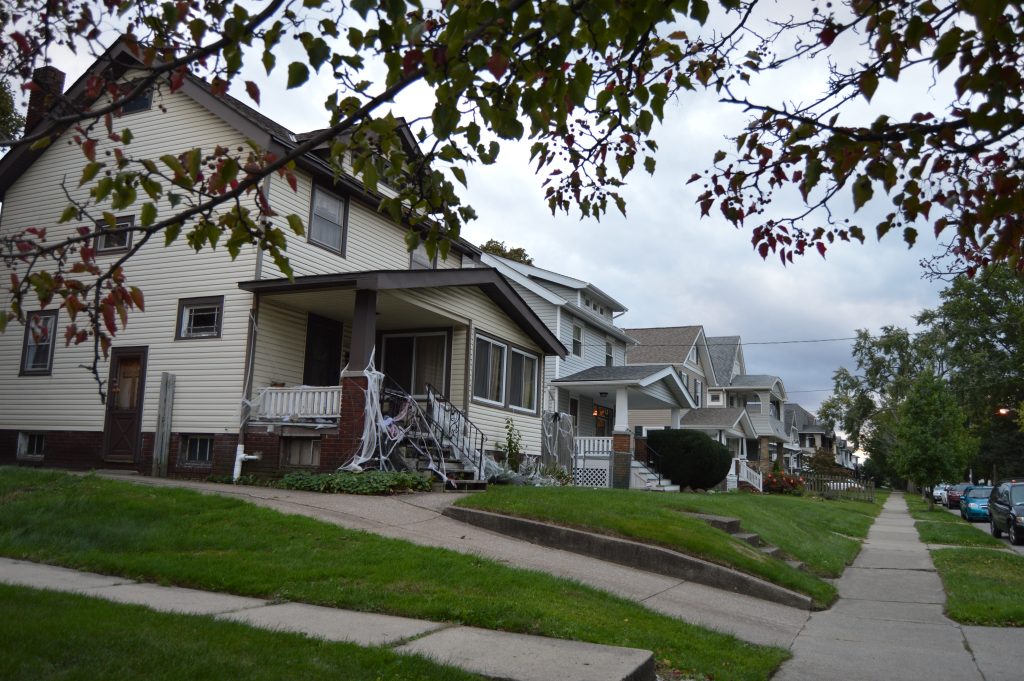

A number of Michigan cities struggle with evictions and the social costs of housing insecurity.
Three cities — Warren, Detroit, and Lansing – are among the top hundred large cities in America with the highest rates of court-ordered evictions. That’s according to EvictionLab.org, which tracks eviction data.
The city of Warren is number nine on that list.
In other places across the country, there are efforts afoot in cities such as Cleveland meant to tackle housing issues through the court system.
WDET’s Jake Neher traveled to Cleveland to find out about that city’s efforts to stem the cycles of housing insecurity and poverty.
Neher joins Detroit Today with Stephen Henderson to talk about what he has learned. Henderson also speaks with Brian Gilmore, associate clinical professor of law at Michigan State University and director of the college of law’s housing clinic, about programs that he has been implementing here in Michigan. And he speaks with Warren City Council President Cecil St. Pierre about what’s happening in that city regarding housing issues.
Click on the audio player above to hear Neher’s report from Cleveland and those conversations.
“A court operation like an institution of justice, not like an eviction processing plant.”
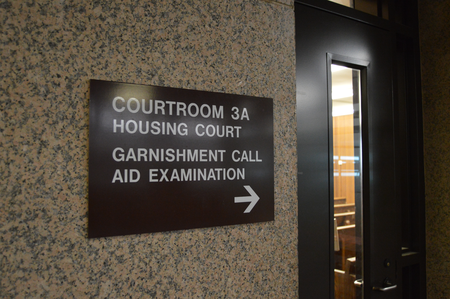
Eviction cases in Cleveland are handled in a small courtroom in a dark corner of the city’s sprawling justice center, which takes up an entire city block. Dozens of people cram into the courtroom waiting for their cases to come up. Typically, eviction cases that go in front of a magistrate take anywhere from two-to-ten minutes to reach a decision.
Many others go instead through mediation — a process with special emphasis in Cleveland’s Municipal Housing Court. It’s one of the first things said in court at the beginning of each docket, that tenants and landlords are encouraged to come to an agreement with a neutral third party present.
Mediation does not always result in a tenant staying in their home, but it might save them from an eviction record. Eviction records can make it difficult for a person to find housing for the rest of his or her life.
According to EvictionLab, Cleveland averages about 12 evictions per day. That’s slightly higher than the national average for a major city, and puts Cleveland at 53rd in the national rankings for highest eviction rates among large cities.
But the housing court is making a number of concerted effort to reduce that number.
“It’s kind of amazing. It’s like a diversionary court for eviction,” says Matthew Desmond, a researcher and author of the Pulitzer Prize-winning book on America’s eviction crisis EVICTED. Desmond is also the founder of EvictionLab.
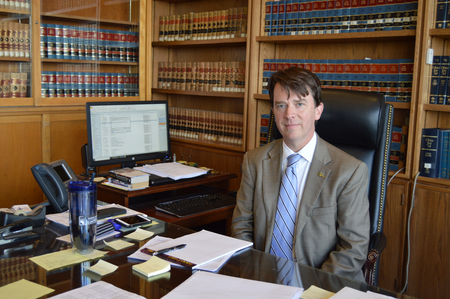
“There’s full-time social workers in the court that are going to try to address the issue at the moment,” he says of Cleveland’s Housing Court. “And that’s a court operation like an institution of justice, not like an eviction processing plant, which is what our status quo is.”
The project he’s referring to is a pilot program which was started under the watch of Judge Ron O’Leary, who oversees Cleveland’s Housing Court. It brings in social workers to screen tenants who come to the court. O’Leary says the goal is to see if the tenants are eligible for assistance through a variety of programs.
“We may see tenants who are seniors. We may see tenants who are veterans or who have some mental or physical health issues or substance abuse issues,” says O’Leary. “The goal in screening the tenants is to see if there are resources available.”
That program made more than 1,500 referrals in 2017, and has almost reached that number already this year.
Because the program has only been in place for about a year and a half, it’s tough to compare data year-over-year. But preliminary numbers show that few people who have gone through this program have returned for another eviction case. And that’s significant, as studies show eviction is cyclical – people who are evicted once are likely to be evicted again.
Judge O’Leary says he’s encouraged by the results so far.
“It was enough positive that I decided to make it a permanent part of what we do here at housing court,” he says.
Click here to see a report from the Cleveland Municipal Housing Court which outlines its social work referral pilot program and provides data about how its doing.
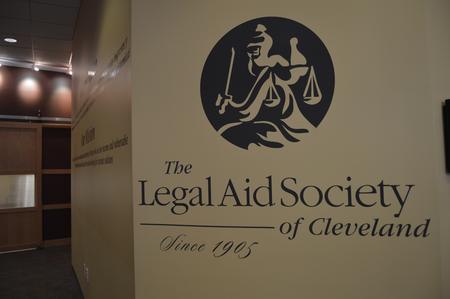
But people who work with low-income tenants don’t want it to stop there.
“There are a number of measures that are sort of a part of the Cleveland Municipal Court that balance the situation a little bit more than some of the other courts that we’re present in,” says Abigail Staudt with the Legal Aid Society of Cleveland, which represents tenants who can’t otherwise afford an attorney.
“But even with that, it’s a pretty stark situation for tenants who are facing eviction,” she says.
Unlike criminal defendants, tenants facing eviction have no right to legal representation.
Staudt and her colleagues are working on a project meant to increase the number of tenants the Legal Aid Society represents from less than two percent to about ten percent. Eventually, the organization hopes the city will pass a statute guaranteeing a right to counsel for all tenants facing eviction. That is something that has already happened in New York City and San Fransisco.
Melanie Shakarian with the Legal Aid Society says those cities have seen huge benefits.
“We know from the data from New York and San Fransisco that it’s pretty incredible. In excess of, like, $260 million is saved by kids staying in school, unused shelter beds, (among other things.)”
“We feel like the efforts that we do here can be replicated from Cleveland to Detroit to Pittsburgh to Kansas City.”
That kind of statute has never been tried in the Midwest or in a city like Cleveland, Detroit, or Warren.
The Legal Aid Society of Cleveland is working with Judge O’Leary and the Municipal Housing Court to come up with a program that will provide more legal assistance for tenants who need it.
Shakarian says they don’t want it to stop in Cleveland.
“We feel like the efforts that we do here can be replicated from Cleveland to Detroit to Pittsburgh to Kansas City to wherever else in the Midwest.”
In the meantime, both of these programs are collecting data to quantify evictions and their cost. And that alone is progress – as data related to evictions are notoriously rare and difficult to find.
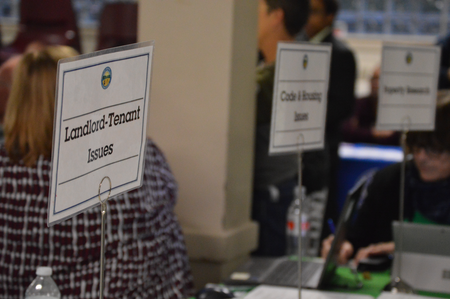
This story has been supported by the Solutions Journalism Network, a nonprofit organization dedicated to rigorous and compelling reporting about responses to social problems.
